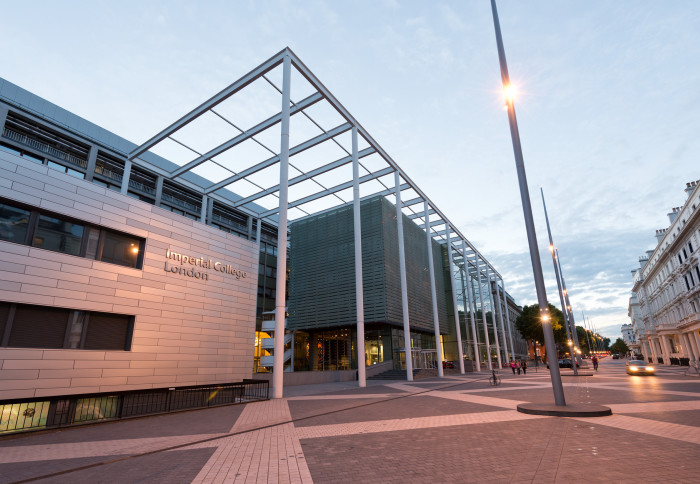New Curricula for Aero MSc courses announced
by Tom Creese

The Department of Aeronautics has formally submitted plans to refresh the curricula of its three MSc courses starting in the 2021/22 academic year.
The news comes after a curriculum review of the Department’s postgraduate courses, including:
- the MSc in Advanced Aeronautical Engineering
- the MSc Composites: The Science, Technology and Engineering Application of Advanced Composites,
- the MSc in Advanced Computational Methods for Aeronautics, Flow Management and Fluid-Structure Interaction.
The paperwork will now be formally reviewed by the Faculty of Engineering and Imperial College London. When approved, the new curricula will deliver a range of benefits to students.
New benefits
Dr Oliver Buxton, the Course Director for the MSc in Advanced Aeronautical Engineering says: “We’re very proud of the way we have modernised the new curriculum, whilst maintaining the extremely high academic standards Imperial College London is renowned for. Further, the structure of all three of our courses has been brought into line with the European Credit Transfer and Accumulation System (ECTS), which will make it more straightforward for our graduates to seek employment or PhD positions across Europe”
“Our MSc courses are advanced and versatile. For our future students, we will provide pre-sessional self-study modules on Mathematics, Programming, Stress Analysis, Control, Compressible Flow, Fluid Dynamics, and Flight Mechanistic. These will be available permanently on our website.”
The curriculum review has led to the introduction of a number of new and exciting lecture courses across the three MSc programmes. Particular highlights include courses on Unmanned Aerial Vehicles, Artificial Intelligence and Spacecraft Systems, Advanced Fluid Mechanics, Applications of CFD, Nanocomposites and Structural Power, Structural Integrity and Health Monitoring. The new and the improved existing lecture courses have been aligned with the research expertise of Imperial College London’s Department of Aeronautics’ world-leading academic staff.
Dr Qianqian Li, who will be teaching a new course in ‘Composite Innovation: Nanocomposites and Structural Power’ said: “I’m very excited to offer our students a new course that goes beyond basic composites knowledge to include the cutting-edge research I am currently carrying out in the Department. It has been a real pleasure to devise this course mirroring ongoing research in my laboratory, which is such an exciting prospect. I hope to introduce students to our world-leading lab facilities and simulation capabilities.”
The structure of all three MSc programmes will be similar. Over the first two terms, students will study nine courses, and pick from an exceptionally broad range of elective modules. This means that each student can tailor the modules they study to their own particular tastes and strengths.
They will also conduct a major individual research project which will now run from December to September, giving students even more one-to-one interaction with the Department of Aeronautics’ academic staff. Many of these projects complement the Department’s UK-leading multi-million-pound research portfolio. Alternatively, students may also choose from, or set up their own, external projects with both industrial and academic external collaborators.
The Director of the MSc in Advanced Computational Methods Professor Sergei Chernyshenko, who oversees project allocation, says: “The remarkable feature of the projects we have always offered is their close links with our actual research, to the extent that students who excelled in their projects became co-authors of papers published in world-leading journals. We foresee that the increase in the project duration will provide students with much-needed additional time for preparing such publications.”
Applications are now being taken for the 2021/22 academic year, when the new curriculum will be rolled out. The Department also intends to fund two scholarships to support outstanding applicants, with more details to follow.
Article text (excluding photos or graphics) © Imperial College London.
Photos and graphics subject to third party copyright used with permission or © Imperial College London.
Reporter
Tom Creese
Department of Aeronautics